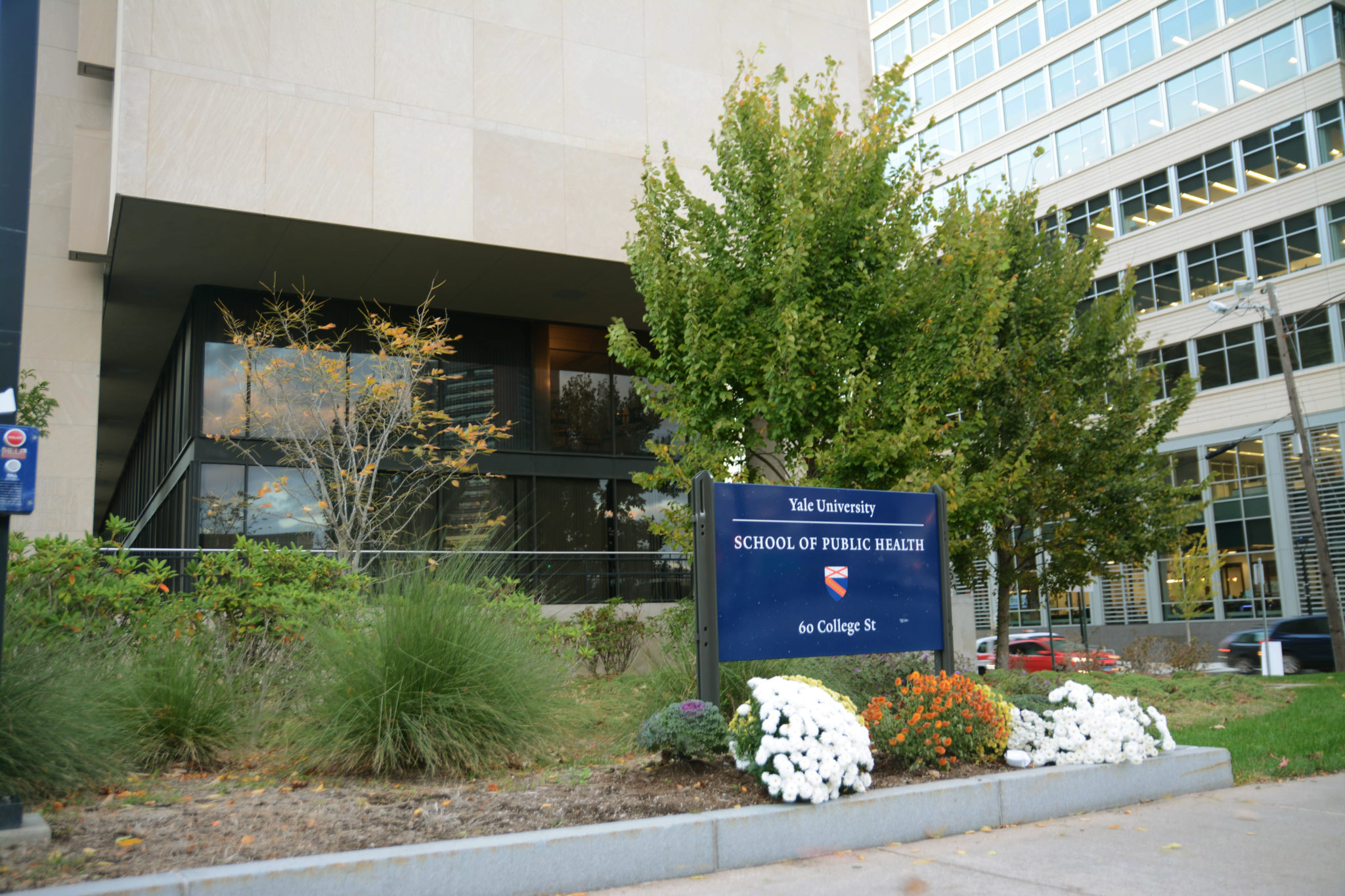Long-term exposure to COVID-19 associated with reduced vaccine efficacy, Yale researchers find
A study led by the Yale School of Public Health and Yale School of Medicine, in collaboration with the Connecticut Department of Correction, found that high levels of exposure to the virus are negatively associated with vaccination efficacy and naturally acquired immunity.

Yale Daily News
A recent study led by researchers at the School of Public Health and the School of Medicine found that persistent exposure to the COVID-19 virus is associated with decreased protection for those who have been vaccinated or naturally acquired immunity.
Completed in collaboration with researchers at Stanford University and the University of Florida, the study used data from the Connecticut Department of Correction that measured the spread of COVID-19 among incarcerated populations. Researchers examined the data to determine how exposure to the COVID-19 virus impacts the efficacy of the vaccine and other forms of immunity.
“There was a lot of interest both on the part of the DoC to better understand what the data was saying about their own policies and how COVID was spreading between the Connecticut correctional system,” Murilo Dorion ’24, a co-author of the study, told the News.
The study found that protection against COVID-19, both from the vaccine and through previous infection, is “leaky,” or exposure-dependent. When inmates were housed with others who had COVID-19, vaccines or acquired immunity from previous infections were less likely to protect them from the disease.
In the months when the delta variant was dominant, researchers found that the vaccine was 68 percent effective in protecting those who had no exposure to infected cellmates. However, the vaccine was only 26 percent effective for those who were exposed to an infected cellmate. Similarly, during the omicron wave, the vaccine was 43 percent effective for those with no exposure but just 4 percent effective for those with exposure.
“This is something that many of us suspected since the beginning of the epidemic,” Albert Ko, professor of public health at the School of Public Health and a senior author of the study said to the News. “If you are exposed to high levels of the virus, that may overwhelm the protection you may have against being infected.”
In many COVID-19 studies, researchers must contend with testing-related biases. Margaret Lind, associate research scientist in epidemiology at the School of Public Health and first author of the study, said that despite the team’s efforts to clean and process the data, residual bias is always a risk.
Benjamin Oldfield, an internal medicine specialist at Yale New Haven Hospital, echoed a similar sentiment in an email to the News. “People with exposures tend to get more COVID tests, and this was the case for the study participants. So, this biases the results towards greater COVID positivity in those with exposures.”
Lind noted that because the correctional facilities were highly controlled and the spread of COVID-19 was well-documented, the study’s findings can be applied to other spaces where the risk of exposure to COVID-19 is heightened.
“We’ve been able to learn a lot about the general mechanisms of COVID, but also provide back information that’s directly applicable to the [Department of Correction],” Lind said. “This study has direct implications in that it encourages, on an individual level, people within correctional facilities to wear masks when a lot of people around them have COVID.”
Lind and Ko highlighted the importance of the study in emphasizing preventative methods to reduce the spread of COVID-19. For both researchers, being vaccinated, wearing masks, social distancing and quarantining continue to be crucial as people become more aware of the imperfect protections the vaccine offers.
With the recent uptick in COVID-19 cases, this study has possible ramifications for policies pertinent to curbing its spread.
“In other congregate situations, like a hospital or indoors, there may be some benefit in trying to reduce your level of exposure to the virus so you can actually maximize the effectiveness and the protection you get from being vaccinated or having immunity from prior infection,” Ko said.
The researchers emphasized the importance of collaborating with organizations like the Connecticut Department of Correction in conducting research that not only advances an understanding of science but also has direct implications for protecting vulnerable populations.
According to Lind, the study has allowed the department to identify policies that are working well and “move into policies that may be working better.”
The Connecticut Department of Correction operates 18 correctional facilities across the state.







